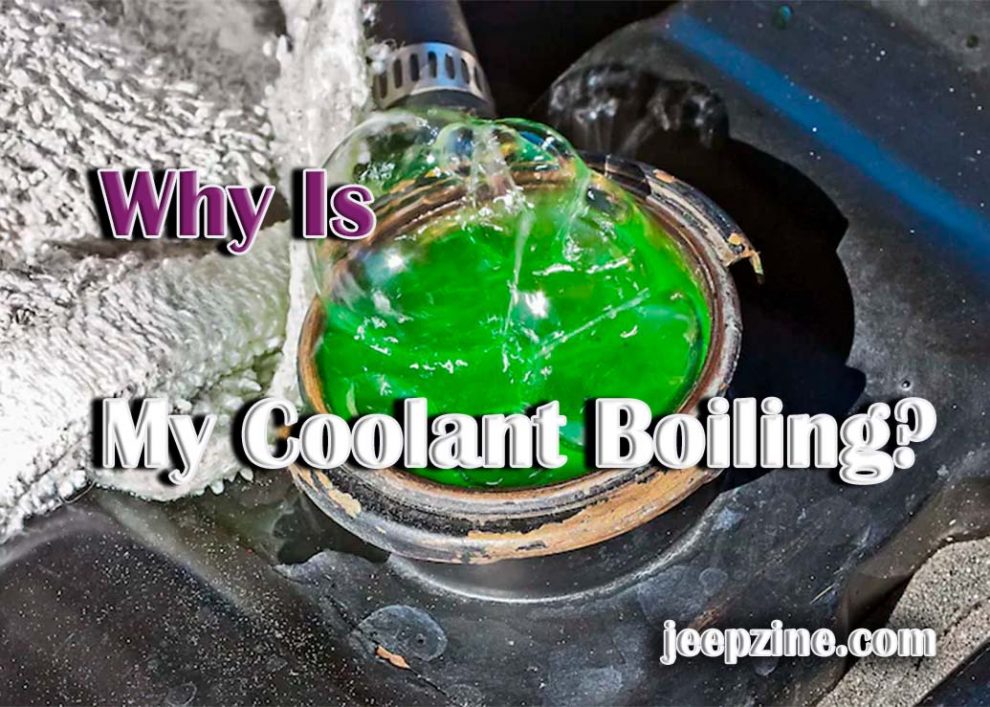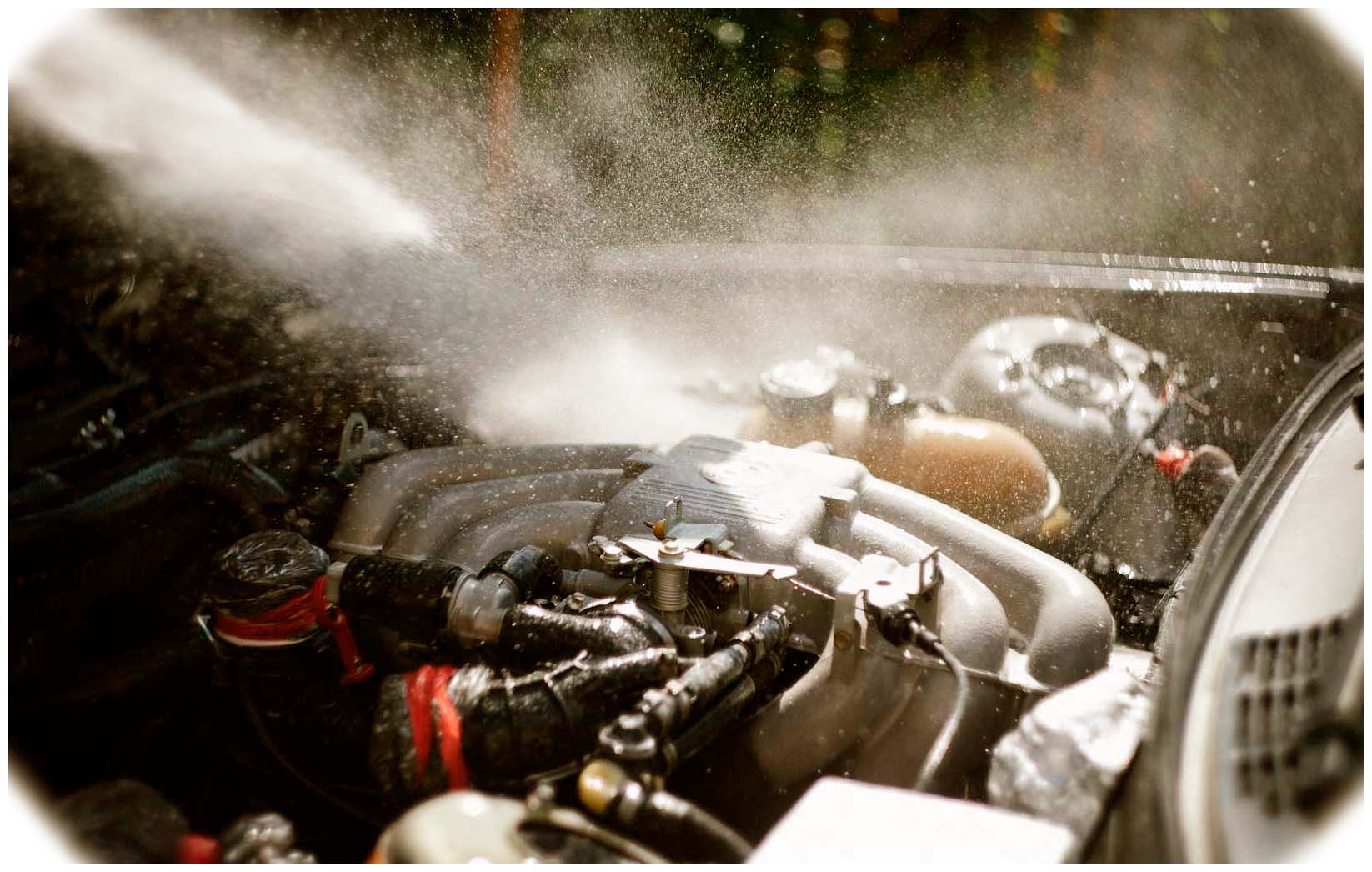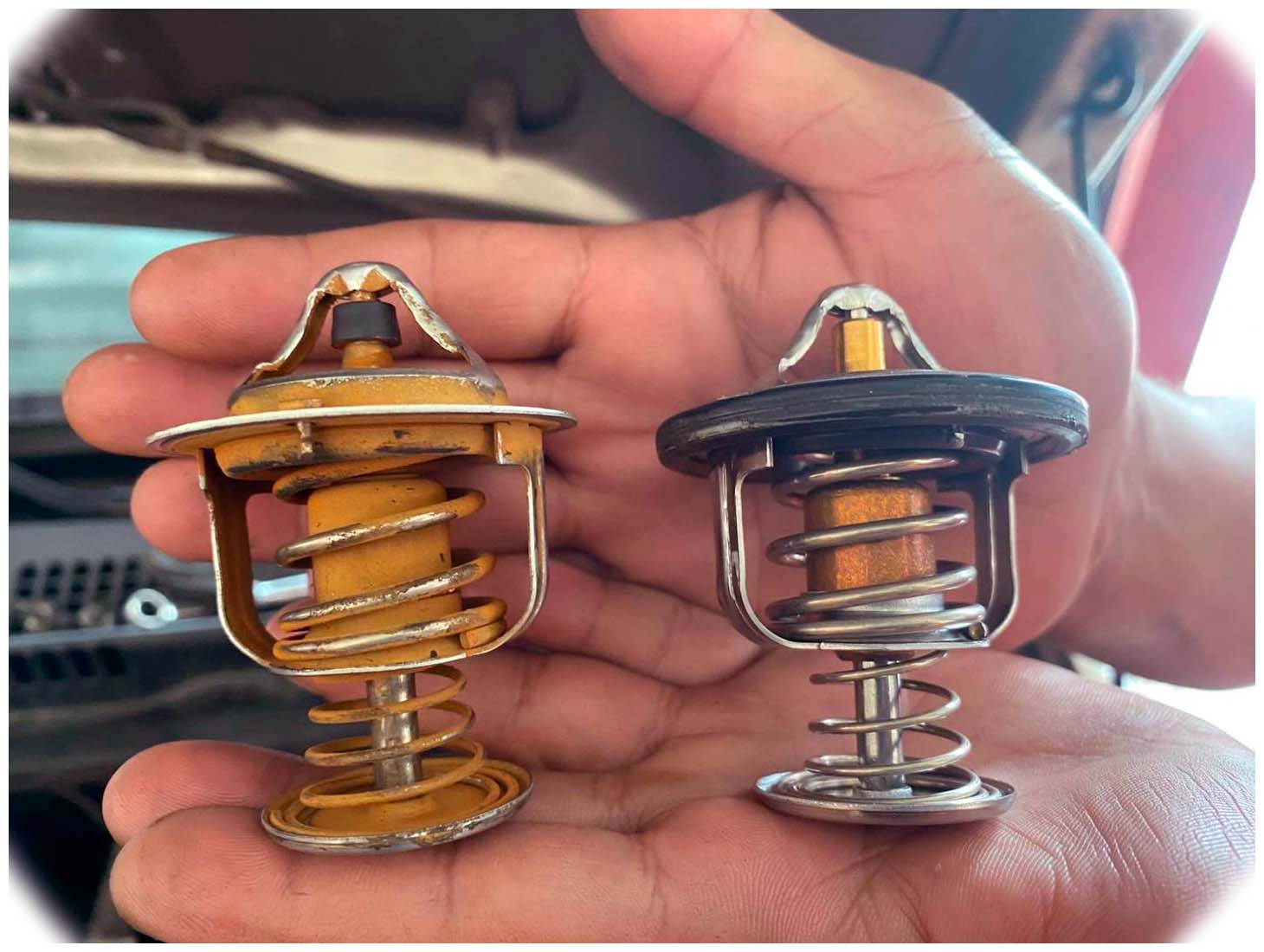Do you ever find yourself asking “Why is my coolant boiling?” If so, you’re not alone. Boiling coolant is a common problem and can occur for many different reasons. In this article, we’ll discuss the causes of a boiling coolant and provide solutions for keeping your engine running smoothly.
What Causes Boiling Coolant?
A boiling coolant can be caused by several factors:
-
Overheating Engine – The most common cause of a boiling coolant is an overheating engine due to low coolant levels or an inadequate cooling system flow rate. This could be caused by many issues such as a faulty water pump or radiator, clogged radiator fins, improper drive belt tension, insufficient airflow through the radiator fins, or faulty thermostat operation.
-
Faulty Radiator Cap – A faulty radiator cap can result in excessive pressure buildup in the cooling system due to excessive heat generated by the engine, which increases pressure on the pressure side of the cooling system beyond what it was designed to handle. This can result in boil-over and steam from the overflow tank when under full operating temperature and load conditions.
-
Low or Incorrectly Mixed Antifreeze/Coolant Ratio – When coolant is not present in sufficient quantities or when the antifreeze/water mixture is incorrect, the result can be an insufficient amount of heat transfer from the engine to the cooling system. This can cause excessive heat buildup and lead to boiling coolant.
-
Leaking Rubber Hoses, Seals, and Gaskets – Rubber hoses, seals and gaskets are all susceptible to wear over time which can lead to leaks in the cooling system. This allows air and coolant to escape resulting in reduced pressure on the pressure side of the cooling system which increases the boiling temperature of the coolant.
-
Blocked Internal Passages in Radiator or Water Pump Impeller – Over time debris such as sediment, rust or corrosion may accumulate inside a radiator reducing its ability to effectively transfer heat away from your engine leading to higher temperatures and possible boiling coolant issues. The same holds for water pump impellers where corrosion or wear may reduce their efficiency leading to higher temperatures on both sides of their vanes due to inadequate flow rate through them.
-
Faulty Thermostat – A faulty thermostat that is stuck open will cause coolant to constantly bypass the radiator, which leads to lower coolant levels and reduced flow rate. This can result in an insufficient amount of heat transfer leading to higher temperatures and boiling coolant issues.
Solutions for Boiling Coolant Problems
If you are experiencing a boiling coolant issue, there are several solutions available to help keep your engine running smoothly:
-
Check the Radiator Cap Pressure Rating – The first step in solving a boiling coolant issue is to ensure that the radiator cap is rated for a pressure that is at least 15-20 PSI above the normal operating temperature of your engine. This will ensure that excessive pressure buildup does not occur due to high temperatures resulting in boiling issues.
-
Refill Engine Cooling System According to Manufacturer Recommendations – You should always check and follow your vehicle’s manufacturer’s recommendations when it comes to refilling or topping up your engine cooling system with antifreeze or coolant. Use only the antifreeze/coolant mix recommended by your vehicle manufacturer as any other type may not provide adequate protection in extreme weather conditions, which can lead to boiling issues.
-
Inspect/Replace Hoses, Seals and Gaskets as Needed – Over time rubber hoses, seals and gaskets can become brittle from exposure to extreme temperatures or repeated flexing. This can lead to cracks, splits and leaks in the cooling system which reduces pressure and lowers coolant levels leading to higher temperatures and boiling issues. Inspect all rubber components regularly and replace them as needed.
-
Flush Cooling System to Eliminate Blocked Passages – If sediment, rust, or corrosion is present in the radiator or water pump impeller it can reduce their efficiency resulting in abnormal temperatures on both sides of their vanes due to inadequate flow rate through them. It’s important to periodically flush your cooling system using a chemical cleaner or a reverse flushing machine to eliminate any blockages that could be causing boiling issues.
-
Replace a Faulty Thermostat – If your thermostat is stuck open it will cause coolant to constantly bypass the radiator resulting in lower coolant levels and reduced flow rate which can lead to higher temperatures and boiling issues. You must have any faulty thermostats replaced as soon as possible by an automotive professional.
Conclusion
Boiling coolant can be caused by a variety of different issues such as an overheating engine, faulty radiator cap, low or incorrectly mixed antifreeze/coolant ratio, leaking rubber hoses, seals, and gaskets, blocked internal passages in the radiator or water pump impeller and faulty thermostat. To prevent boiling issues, it’s important to check the radiator cap pressure rating and refill the engine cooling system according to manufacturer recommendations as well as inspect/replace hoses, seals and gaskets as needed. Additionally, you should flush your cooling system to eliminate any blocked passages and replace any faulty thermostats. By taking these steps you can ensure that your engine runs smoothly without any boiling coolant issues.


 Overheating Engine – The most common cause of a boiling coolant is an overheating engine due to low coolant levels or an inadequate cooling system flow rate. This could be caused by many issues such as a faulty water pump or radiator, clogged radiator fins, improper drive belt tension, insufficient airflow through the radiator fins, or faulty thermostat operation.
Overheating Engine – The most common cause of a boiling coolant is an overheating engine due to low coolant levels or an inadequate cooling system flow rate. This could be caused by many issues such as a faulty water pump or radiator, clogged radiator fins, improper drive belt tension, insufficient airflow through the radiator fins, or faulty thermostat operation. Flush Cooling System to Eliminate Blocked Passages – If sediment, rust, or corrosion is present in the radiator or water pump impeller it can reduce their efficiency resulting in abnormal temperatures on both sides of their vanes due to inadequate flow rate through them. It’s important to periodically flush your cooling system using a chemical cleaner or a reverse flushing machine to eliminate any blockages that could be causing boiling issues.
Flush Cooling System to Eliminate Blocked Passages – If sediment, rust, or corrosion is present in the radiator or water pump impeller it can reduce their efficiency resulting in abnormal temperatures on both sides of their vanes due to inadequate flow rate through them. It’s important to periodically flush your cooling system using a chemical cleaner or a reverse flushing machine to eliminate any blockages that could be causing boiling issues.
Add Comment